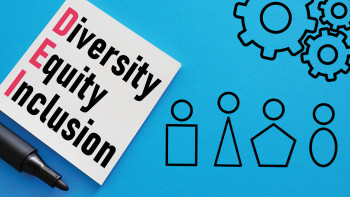
You learn nothing from life if you think you are right all the time. However, if you are willing to examine and analyse your failures sincerely, the road to success becomes smoother.
Young managers often marvel at the stupendous success of legendary captains of industry and often tend to presume that it’s all due to luck. They find it difficult to believe that business tycoons too would have encountered repeated failures and even fallen by the wayside before tasting success. In fact, even the first-time big success is never permanent. To do outstandingly well in business one has to be ready to face ups and downs all the time and master the art of tackling challenges.
That is the story of almost all business barons. Let me share with you the trials and tribulations faced by some of the business icons who continue to inspire the current generation.
Many of you must have heard of the name of billionaire Jack Ma who founded Chinese e-commerce site Alibaba in 1999. Forbes assessed his net worth at $ 36 billion last year. But are you aware that he failed to bag any job he applied for after college? And these were basic starting jobs in organisations like Kentucky Fried Chicken (KFC). Two dozen job-seekers had applied, 23 were absorbed, leaving only Jack Ma out.
The failure spree continued as he could not get a job in any of the 30 companies he applied to in his home town Hangzhou, China. Then he tried to join the police. There were five applicants, four got selected barring Jack. When he tried to get a waiter’s job in the town’s only four-star hotel, he lost out to his cousin who had scored less than him.
But Jack did not lose heart. According to CNBC’s David Grogan, the early rejection taught him an important business lesson: “You have to get used to failure,” he stated, speaking much later at the University of Nairobi.
Jack Ma told an author in 2015 that he was turned down by Harvard University 10 times. “I told myself someday I should go teach there may be,” Jack laughed off the lapses even though found the string of failures painful. But he was, even if unwittingly, getting prepared for a glowing entrepreneurial future.
Jack has been quoted as saying, “If you cannot get used to failure — just like a boxer — if you can’t get used to [being] hit, how can you win?”
The initial rumble and tumble stood Jack Ma in good stead when he set up Chinese e-commerce site Alibaba in 1999 and tried to raise $ 5 million from venture capitalists in the USA in 2001. He met with a string of ‘no’s’. But steeled by his earlier failures, Jack Ma triumphed over the rejections and continued with his pursuit. He had the last laugh. Those who failed to see the merit and fortitude in Jack Ma earlier must be ruing over their decision. Today Alibaba commands market capitalisation of about $ 400 billion.
Ma, therefore, now passes around case studies about failure to colleagues at Alibaba. He says, “When you read too many success stories, people go crazy… They think ‘I can be successful...’(But the truth is) when you share a lot of failure stories, you learn.”
It would be vain and foolhardy to assert that one knows no fear. Fear is a part of life and behaviour of all living beings. In the context of this article, fear of failure in business is all the more relevant. So wouldn’t it be advisable to accept this reality and devise ways to combat fear when it takes us in its grip?
The bestselling author, investor and podcast host Tim Ferriss explained his unique theory in a recent TED Talk. We know that goal- setting is an essential corporate practice irrespective of the fact whether the goals have been or are achieved by companies and their rank and file. Ferriss, instead, prepared a written exercise called fear-setting.
In his TED Talk, titled ‘Why you should define your fears instead of your goals’, Ferriss explained that he first documents his fears, lists what may or may not happen as a result of that fear and then writes down what he can do to prevent it. He asserted that he can trace his major successes to fear-setting because his hardest choices and biggest fears are often what he needs to do most. Elaborating in a YouTube post, he said that to succeed “you need to fail, learn how to fail and condition yourself to fail.”
 Apple’s (late) Steve Jobs and Microsoft’s Bill Gates too have accepted their encounter with fear. These bright minds have accepted that failure is a necessary evil on the road to success.
One may find it strange, but Steve Jobs openly stated that the idea of death motivated him to never fear failure.
A CNBC article on him stated, “One of the late Jobs’ primary motivations in achieving success, albeit morbid, was realizing that one day he would die. In comparison, failure seemed like nothing.”
Jobs literally transitioned from failure to success. “The tech mastermind dropped out of college, launched a business, got kicked out of it and later re-joined when it was failing,” says the CNBC report.
Apple’s market value is expected to cross $ one trillion soon, making it the world’s first publicly listed company to reach the coveted mark.
The world’s richest man, Bill Gates of Microsoft, is reported to have said, “It is fine to celebrate success but it is more important to heed the lessons of failure.”
Like Steve Jobs, Bill Gates too dropped out of college before launching his first company called Traf-O-Data, at the age of 17. Although the company was a failure, according to co-founder Paul Allen, the duo used what they learned from that experience to create Microsoft.
Microsoft is currently valued at over $ 700 billion, and with a net worth of $ 91.7 billion, Gates is the richest person on the planet, according to Forbes.
But even at Microsoft, Gates came face to face with failure repeatedly. However, instead of losing his wits, he took these challenges in his stride and learned from them.
“It’s all in how you approach failures,” says the world’s richest man.
Wouldn’t it be fruitful for all of us to maximise benefits from failures?
Apple’s (late) Steve Jobs and Microsoft’s Bill Gates too have accepted their encounter with fear. These bright minds have accepted that failure is a necessary evil on the road to success.
One may find it strange, but Steve Jobs openly stated that the idea of death motivated him to never fear failure.
A CNBC article on him stated, “One of the late Jobs’ primary motivations in achieving success, albeit morbid, was realizing that one day he would die. In comparison, failure seemed like nothing.”
Jobs literally transitioned from failure to success. “The tech mastermind dropped out of college, launched a business, got kicked out of it and later re-joined when it was failing,” says the CNBC report.
Apple’s market value is expected to cross $ one trillion soon, making it the world’s first publicly listed company to reach the coveted mark.
The world’s richest man, Bill Gates of Microsoft, is reported to have said, “It is fine to celebrate success but it is more important to heed the lessons of failure.”
Like Steve Jobs, Bill Gates too dropped out of college before launching his first company called Traf-O-Data, at the age of 17. Although the company was a failure, according to co-founder Paul Allen, the duo used what they learned from that experience to create Microsoft.
Microsoft is currently valued at over $ 700 billion, and with a net worth of $ 91.7 billion, Gates is the richest person on the planet, according to Forbes.
But even at Microsoft, Gates came face to face with failure repeatedly. However, instead of losing his wits, he took these challenges in his stride and learned from them.
“It’s all in how you approach failures,” says the world’s richest man.
Wouldn’t it be fruitful for all of us to maximise benefits from failures?
Basant Chaudhary is a Poet, Writer, The Chairman of BLC and Basant Chaudhary Foundation. ([email protected])
 Apple’s (late) Steve Jobs and Microsoft’s Bill Gates too have accepted their encounter with fear. These bright minds have accepted that failure is a necessary evil on the road to success.
One may find it strange, but Steve Jobs openly stated that the idea of death motivated him to never fear failure.
A CNBC article on him stated, “One of the late Jobs’ primary motivations in achieving success, albeit morbid, was realizing that one day he would die. In comparison, failure seemed like nothing.”
Jobs literally transitioned from failure to success. “The tech mastermind dropped out of college, launched a business, got kicked out of it and later re-joined when it was failing,” says the CNBC report.
Apple’s market value is expected to cross $ one trillion soon, making it the world’s first publicly listed company to reach the coveted mark.
The world’s richest man, Bill Gates of Microsoft, is reported to have said, “It is fine to celebrate success but it is more important to heed the lessons of failure.”
Like Steve Jobs, Bill Gates too dropped out of college before launching his first company called Traf-O-Data, at the age of 17. Although the company was a failure, according to co-founder Paul Allen, the duo used what they learned from that experience to create Microsoft.
Microsoft is currently valued at over $ 700 billion, and with a net worth of $ 91.7 billion, Gates is the richest person on the planet, according to Forbes.
But even at Microsoft, Gates came face to face with failure repeatedly. However, instead of losing his wits, he took these challenges in his stride and learned from them.
“It’s all in how you approach failures,” says the world’s richest man.
Wouldn’t it be fruitful for all of us to maximise benefits from failures?
Apple’s (late) Steve Jobs and Microsoft’s Bill Gates too have accepted their encounter with fear. These bright minds have accepted that failure is a necessary evil on the road to success.
One may find it strange, but Steve Jobs openly stated that the idea of death motivated him to never fear failure.
A CNBC article on him stated, “One of the late Jobs’ primary motivations in achieving success, albeit morbid, was realizing that one day he would die. In comparison, failure seemed like nothing.”
Jobs literally transitioned from failure to success. “The tech mastermind dropped out of college, launched a business, got kicked out of it and later re-joined when it was failing,” says the CNBC report.
Apple’s market value is expected to cross $ one trillion soon, making it the world’s first publicly listed company to reach the coveted mark.
The world’s richest man, Bill Gates of Microsoft, is reported to have said, “It is fine to celebrate success but it is more important to heed the lessons of failure.”
Like Steve Jobs, Bill Gates too dropped out of college before launching his first company called Traf-O-Data, at the age of 17. Although the company was a failure, according to co-founder Paul Allen, the duo used what they learned from that experience to create Microsoft.
Microsoft is currently valued at over $ 700 billion, and with a net worth of $ 91.7 billion, Gates is the richest person on the planet, according to Forbes.
But even at Microsoft, Gates came face to face with failure repeatedly. However, instead of losing his wits, he took these challenges in his stride and learned from them.
“It’s all in how you approach failures,” says the world’s richest man.
Wouldn’t it be fruitful for all of us to maximise benefits from failures?
Basant Chaudhary is a Poet, Writer, The Chairman of BLC and Basant Chaudhary Foundation. ([email protected])
Published Date: March 18, 2018, 12:00 am
Post Comment
E-Magazine
RELATED Business Sutra





